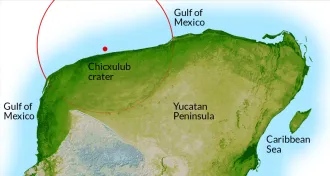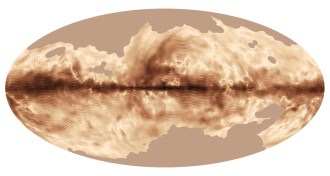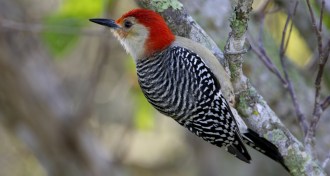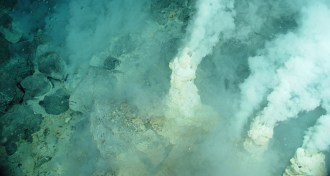News in Brief
-
 Particle Physics
Particle PhysicsProposed experiment would create matter from light
Photon collider would convert light into electrons and positrons.
By Andrew Grant -
 Genetics
GeneticsQatari people carry genetic trace of early migrants out of Africa
Qatari genomes carry shards of DNA that date back 60,000 years, when humans began to leave Africa.
-
 Health & Medicine
Health & MedicineBlood test predicts if false labor is headed for delivery room
A test for white blood cells and specific genetic markers may offer insights into whether preterm contractions are false labor or the real thing.
By Nathan Seppa -
 Climate
ClimateAntarctic glacier melt is unstoppable
The inevitable collapse of Antarctic’s western glaciers could raise global sea level by more than 4 meters in coming centuries.
By Beth Mole -
 Paleontology
PaleontologyAsteroid strike spurred quick chill that led to dinosaurs’ demise
After an asteroid struck Earth 66 million years ago, ocean temperatures fell 2 degrees Celsius, leading to mass extinction of dinosaurs and other life.
-
 Astronomy
AstronomyMilky Way’s magnetic field mapped
The Planck telescope sees the galaxy’s magnetic field in polarized light bouncing off interstellar dust grains.
-
 Genetics
GeneticsOrganism with artificial DNA alphabet makes its debut
Using DNA molecules other than A, C, G and T, scientists have created the first living organism with an expanded genetic alphabet.
By Beth Mole -
 Animals
AnimalsWoodpecker beaks divulge shock-absorbing properties
Scales, sutures and porosity help the birds hammer without going stupid.
By Susan Milius -
 Health & Medicine
Health & MedicineU.S. patient with MERS virus is on the mend
A man in Indiana does not seem to have spread the potentially deadly respiratory illness.
-
 Health & Medicine
Health & MedicineMassachusetts insurance mandate lowers death rate
Since “Romneycare” was phased in, mortality fell by 2.9 percent.
By Nathan Seppa -
 Health & Medicine
Health & MedicineFirst MERS case found in the U.S.
Patient in Indiana had traveled from Arabian Peninsula, where most of the 463 cases of Middle Eastern Respiratory Syndrome have occurred.
-
 Microbes
MicrobesViruses buoy life at hydrothermal vents
Using hijacked genes, deep-sea viruses help sulfur-eating bacteria generate power in the plumes of hydrothermal vents.
By Beth Mole